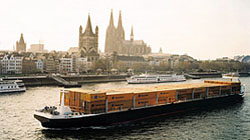Research and preparation for overseas shipping
Research and preparation for overseas shipping are crucial steps when planning your move abroad. Before shipping your belongings overseas, it’s important to understand the regulations and requirements of the country you’re moving to, as well as the shipping company’s policies. Here are some key points to consider:
- Customs regulations: Research the customs regulations of your destination country to understand what items are allowed to be shipped and any restrictions or duties that may apply.
- Shipping company requirements: Contact shipping companies to gather information on their specific requirements, such as documentation, packaging guidelines, and delivery timelines.
- Costs: Evaluate the costs associated with overseas shipping, including transportation fees, insurance, and any additional charges for special items or expedited delivery.
Careful research and preparation will help ensure a smooth overseas shipping process and minimize potential issues upon arrival in your new location.

Choosing the right shipping method
When planning your overseas move, it’s crucial to choose the right shipping method for transporting your belongings. Options include air freight and sea freight, each with its own advantages and considerations. Here are a few key points to keep in mind:
- Air Freight: This method is faster but generally more expensive. It’s ideal for shipping smaller, urgent items that you’ll need soon after arriving at your new destination.
- Sea Freight: Although slower, sea freight is a cost-effective option for transporting larger volumes of goods. It’s best for non-urgent items and for those on a tighter budget.
Consider the size and quantity of your belongings, as well as your timeframe and budget when deciding between these shipping methods.
Understanding customs and import regulations
Moving overseas involves abiding by customs and import regulations. Each country has its own rules for what items can be brought in and what is prohibited. As a tip, it’s best to research the specific regulations of your destination country before packing. Make sure to declare all your goods at the border to avoid any unnecessary fines or delays. Items such as plants, food, and animal products are commonly restricted, so it’s essential to be well-informed about what is allowed and what is not.
Finding a reliable overseas shipping company
When looking for a reliable overseas shipping company, it’s important to consider several factors to ensure a smooth and secure move. Here are some key points to keep in mind:
- Reputation: Research and gather feedback on various shipping companies to understand their reputation and track record. Look for customer reviews and ratings to gauge their reliability and service quality.
- Experience: Choose a shipping company with a proven track record of handling overseas moves. Experienced companies are likely to have the expertise and resources to navigate the complexities of international shipping.
- Customs Regulations: Ensure that the shipping company is well-versed in the customs regulations of your destination country. They should be able to provide guidance on relevant documentation and requirements to avoid any delays or complications.
- Insurance Coverage: Inquire about the insurance coverage provided by the shipping company for your belongings. Having adequate insurance can provide peace of mind in the event of any unforeseen events during transit.
- Cost and Services: Compare the cost and services offered by different shipping companies to find the best fit for your needs. Look for transparent pricing and a comprehensive range of services to handle your overseas move efficiently.
Packing and organizing your belongings for shipping
When you’re planning to move overseas, it’s essential to carefully pack and organize your belongings for shipping. Here are some key points to consider:
- Decluttering: Before packing, go through your belongings and decide what to keep, donate, or discard. This will make your packing process more manageable and lighten the load for shipping.
- Packaging materials: Invest in sturdy boxes, bubble wrap, packing paper, and strong tape to protect your items during transit.
- Labeling: Clearly label each box with its contents and the room it belongs to. This will make unpacking much easier at your new destination.
- Documentation: Keep a detailed inventory of your items, and make sure to have all necessary documentation for shipping internationally, such as customs forms and shipping labels.
- Professional help: Consider hiring professional movers or shipping companies with experience in international moves to ensure your belongings are handled and transported with care.
By following these steps, you can ensure a smooth and organized process for packing and shipping your belongings overseas.
Insurance and protection for your goods
To ensure the safety of your belongings during an overseas move, it’s essential to consider insurance and protection options. Many moving companies offer insurance coverage for your goods, but it’s important to carefully review the terms and conditions. Some companies may offer basic coverage as part of their package, while others may provide additional options for extra protection. When assessing your insurance needs, consider the value of your items and the potential risks involved in international transportation. Prioritize obtaining comprehensive insurance coverage to safeguard your belongings throughout the moving process.
Tracking and monitoring your shipment
When planning your overseas move, it’s crucial to keep track of your shipment to ensure everything arrives safely and on time. Here are the key steps to tracking and monitoring your shipment:
- Obtain tracking information: Once your items are shipped, make sure to obtain the tracking information from your moving company or freight carrier.
- Use online tracking tools: Most moving companies provide online tracking tools that allow you to monitor the progress of your shipment in real-time.
- Communicate with your moving company: Stay in touch with your moving company to receive updates on your shipment’s location and estimated arrival.
- Monitor for any delays or issues: Keep an eye on your shipment for any unexpected delays or issues and communicate with your moving company if necessary.
Dealing with potential delays and issues
When planning your overseas move, it’s essential to prepare for potential delays and issues that may arise along the way. Delays can occur due to various reasons such as customs inspections, documentation errors, or unexpected changes in regulations. To deal with these potential issues, consider the following:
- Stay informed about the customs regulations and requirements of your destination country to prevent any unexpected delays during the shipping process.
- Have a contingency plan in case of unexpected delays, such as having a temporary accommodation arranged or keeping important documents easily accessible.
Being aware of potential delays and issues can help you anticipate and manage them effectively, ensuring a smoother transition to your new overseas destination.
Receiving and unpacking your shipped items
Upon receiving your shipped items, carefully inspect each package for any damages. Take inventory of all your items to make sure nothing is missing. Then, start unpacking and placing the items in their designated areas to avoid clutter. It’s essential to handle fragile items with care and store them in a safe place. Don’t rush, as organizing your belongings thoughtfully will save you time later on.
Settling into your new location
When settling into your new location, it’s important to familiarize yourself with the local culture and customs. Take the time to explore the neighborhood, finding out where the nearest grocery stores, pharmacies, and other essential amenities are located. Additionally, making connections with locals and other expats in the area can provide valuable insights and support as you adjust to your new surroundings. Remember to also familiarize yourself with the local laws and regulations to ensure a smooth transition.







